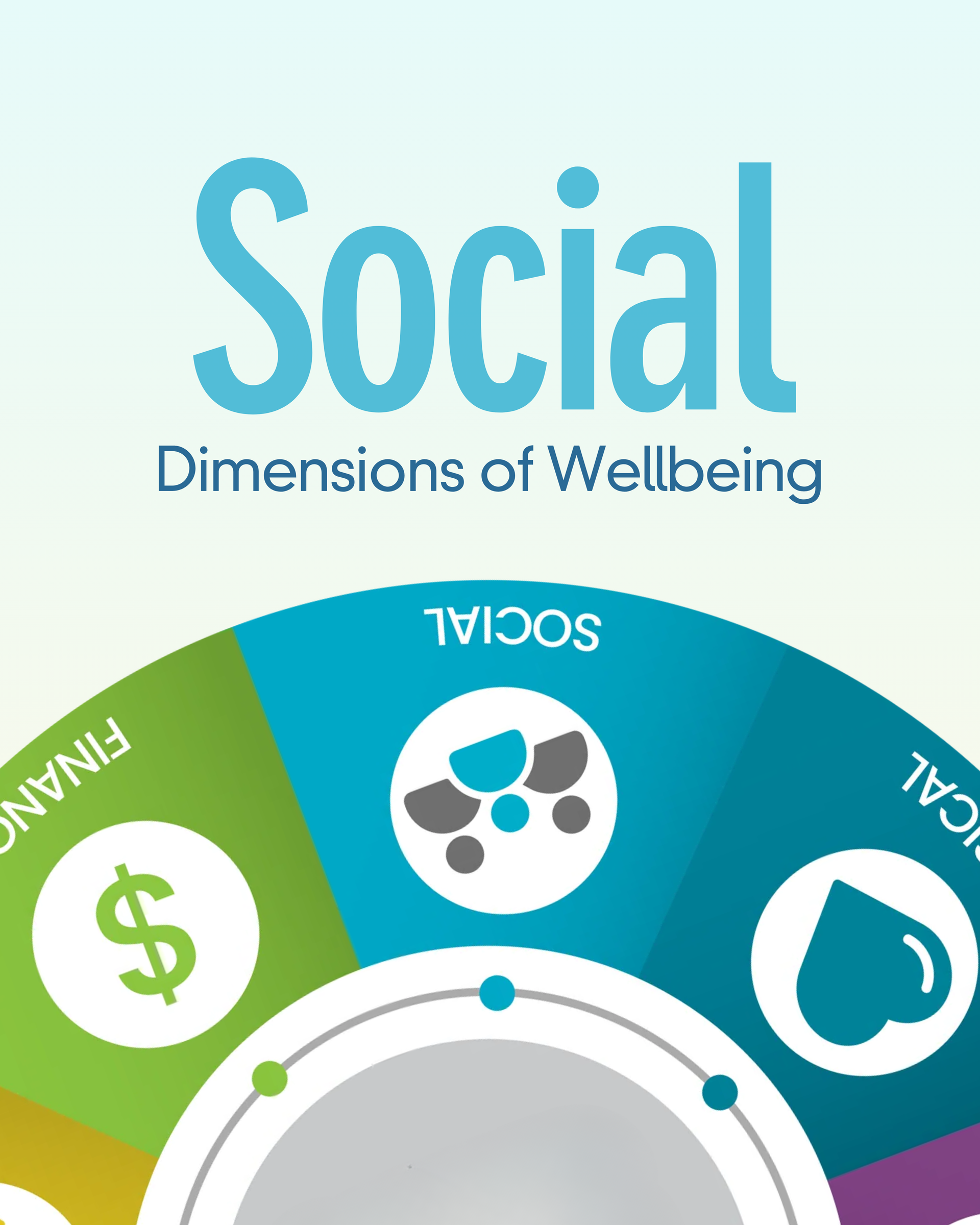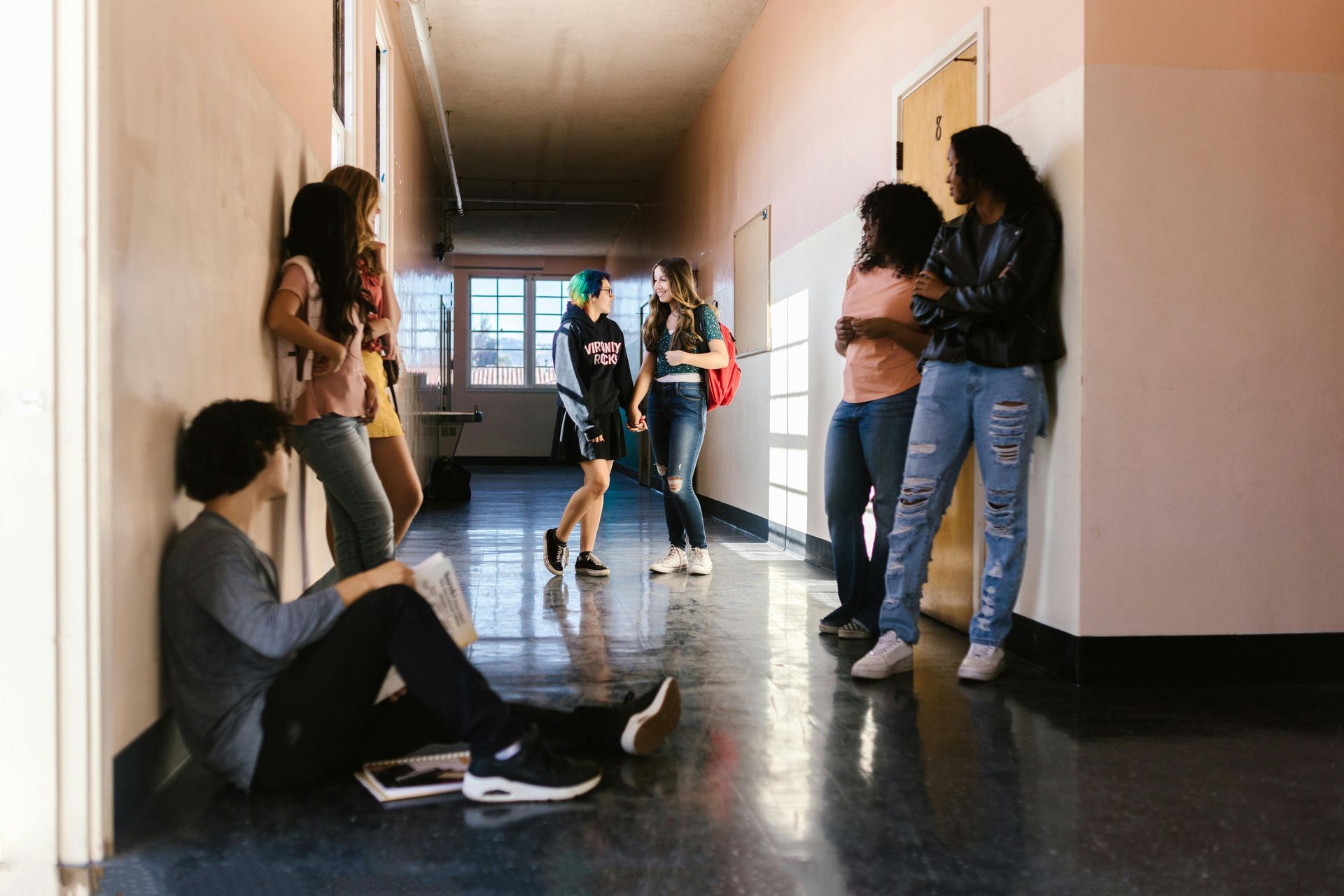The 8 Dimensions of Wellbeing: Social Wellbeing

When we talk about your “wellbeing” as a college student, we’re talking about more than having a good attitude or hitting the gym. Wellbeing is made up of eight interconnected dimensions that shape how we feel, function, and live. These include emotional, physical, social, intellectual, spiritual, environmental, occupational, and financial wellbeing. When one area is off, it can affect all the others.
In this post, we’re taking a closer look at the third dimension: Social Wellbeing.
What Is Social Wellbeing?
Social wellbeing is all about connection. It’s the quality of your relationships and the sense of belonging you feel in your communities. Social wellbeing isn't about being outgoing; it's about feeling supported, understood, and safe with those around you.
This dimension includes friendships, family dynamics, romantic relationships, classmates, teammates, and even interactions with professors or coworkers. But social wellbeing is about more than just who you know, it’s how these relationships affect you and how you engage in them.
How Social Wellbeing Shows Up

Social wellbeing plays a huge role in your daily experience, especially in college, where so much of your life happens in shared spaces. Signs your social wellbeing is in a good place might include:
- You have at least one or two people you trust and can talk to honestly.
- You feel like you belong in at least one community (think: a class, club, dorm, team, or friend group).
- You enjoy spending time with others and feel okay spending time alone.
- You’re able to set healthy boundaries and still maintain strong relationships.
- You feel energized (not drained) by most of your interactions.
When your social wellbeing is strong, it can act as a buffer against stress. Knowing someone has your back or just having someone to eat lunch with can make a big difference in how you navigate college life.
What to Watch For
It’s totally normal for relationships to ebb and flow, especially during big life transitions like starting college. But social wellbeing can take a hit if you’re feeling isolated, constantly misunderstood, or unsure how to connect. Some signs this dimension needs attention:
- Feeling lonely, even when you're surrounded by people
- Avoiding social situations because they feel overwhelming or awkward
- Constantly feeling drained by interactions with friends, classmates, or family
- Struggling to communicate your needs or set boundaries
- Feeling like you don’t “fit in” anywhere on campus
- Having few (or no) people you can call when something goes wrong

None of these mean you’re doing anything wrong. They are signs your social life might need more support or intentionality. Social wellbeing doesn’t happen by accident. It takes time, effort, and sometimes a little trial and error. The first step? Just noticing how you feel in your relationships and what kinds of connections you’re craving.
Coming Up Next:
Intellectual Wellbeing










